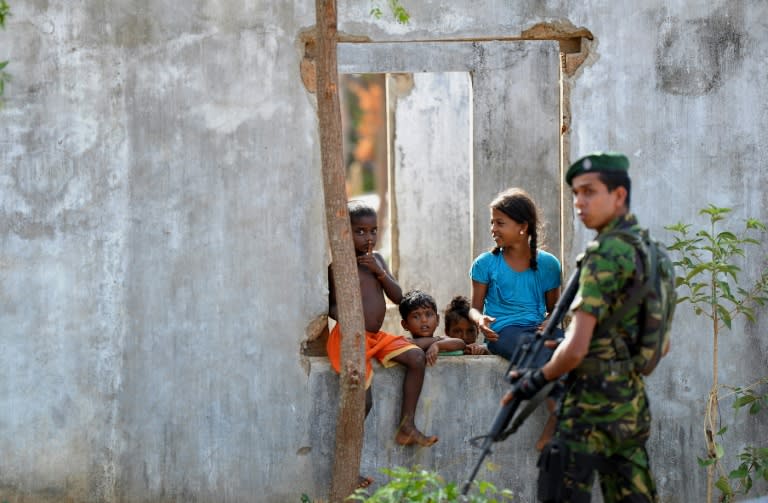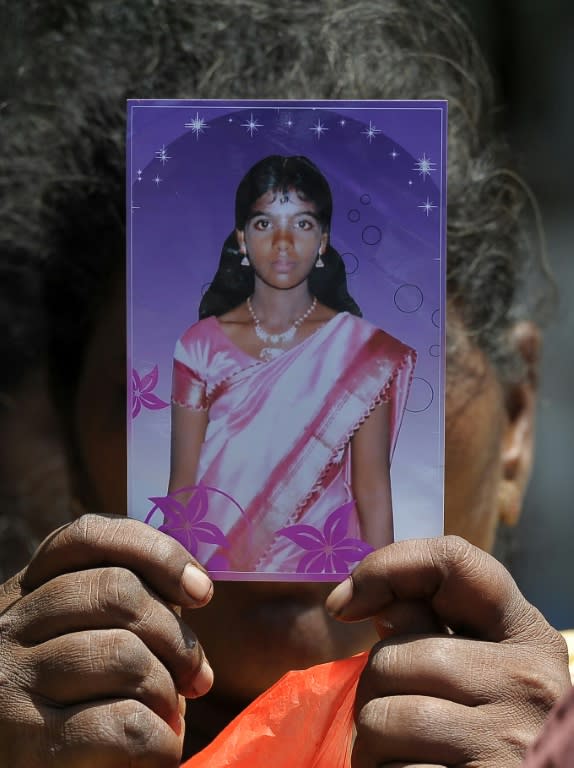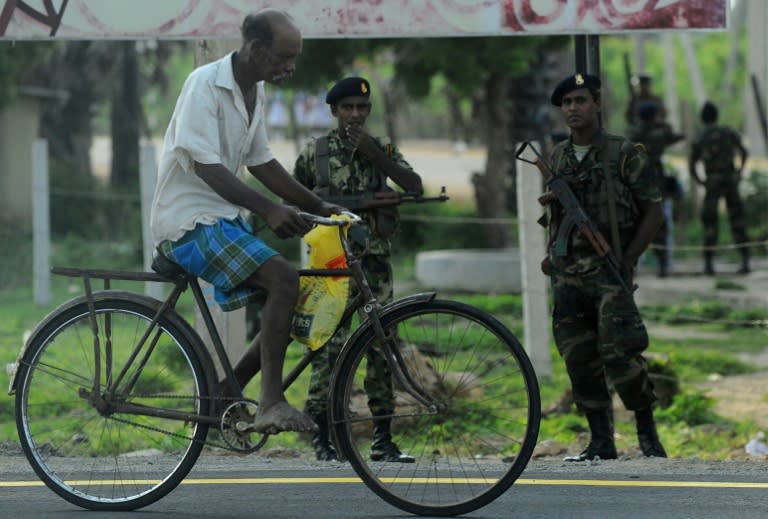UN chief calls on Sri Lanka to loosen army's grip
UN chief Ban Ki-moon Friday toured Sri Lanka's former killing fields and met with war-battered minority Tamils after urging Colombo to reduce the army's presence to ease tensions following decades of ethnic bloodshed. The UN secretary general held talks with the main opposition politicians in the northern town of Jaffna, 400 kilometres (250 miles) north of Colombo on the final leg of the two-day visit. The region saw some of the bloodiest battles during the 37-year war with the entire Jaffna population of 800,000 displaced at various stages of the fighting, with many still refugees in their own country. Dozens of Tamil civilians held pictures of their loved ones still unaccounted for seven years after the war ended and staged a silent demonstration outside the Jaffna public library where Ban met with local politicians. "About 100 people from my village signed the petition asking him (Ban) to help us get back our property," Tamil fisherman, Joseph Rasanayagam, 59, told AFP before the UN diplomat's visit. More than 100,000 Tamils cannot access their homes in the region, either because they were destroyed in the fighting that ended in 2009, or because the land is still occupied by the military. Tamil groups maintain 32 camps for internally displaced persons in the Jaffna peninsula. Giving a public lecture in Colombo earlier, Ban welcomed what he called symbolic steps taken by the new government to ensure ethnic reconciliation but called for more momentum to ensure lasting peace. "I also urge you to speed up the return of (Tamil) land so that the remaining communities of displaced people can return home," Ban said in the presence of Foreign Minister Mangala Samaraweera. "In parallel, the size of the military force in the (former war zones of) north and east could be reduced, helping to build trust and reduce tensions." - 'Important lessons' - He also pressed for accountability for the "tens of thousands of civilians" who perished in the final months of the war in 2009, a figure disputed by the former government. "There is still much work to be done in order to redress the wrongs of the past and to restore the legitimacy and accountability of key institutions, particularly the judiciary and the security services," Ban said. Tamil politicians have asked the UN to intervene and ensure an investigative mechanism. Colombo has said it is willing to accept foreign technical and forensic expertise. On the first full day of his visit Thursday, dozens of majority Sinhalese nationalists rallied outside the UN compound in Colombo, protesting against the UN's actions during the prolonged ethnic war. Ban said on Friday that the UN too learnt lessons from Sri Lanka's conflict. Tamils had accused the UN of failing to protect civilians during the fighting while the then government in Colombo accused the world body of interference. "Sri Lanka has taught us many important lessons," he said. "Building on these, the United Nations has taken wide-ranging steps to strengthen our focus on human rights, particularly during times of political and humanitarian crisis."





